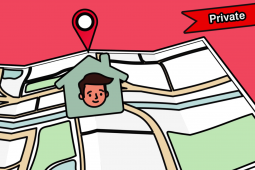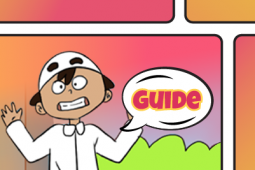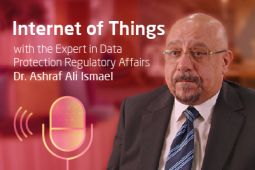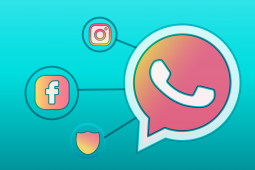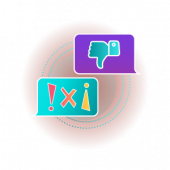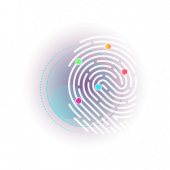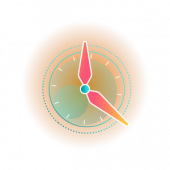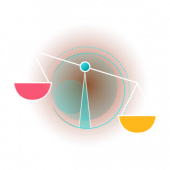What is private information?
How Applications Are Selling Our Data

Have you ever received an advertisement email about items you have searched for? Or saw ads on your social media page or on one of the applications installed on your mobile device for a store you just passed nearby? İt is weird and scary ...no?!
How does this happen? What is that magic such platforms trick us with?
My answer is THE POWER OF DATA!
What does it mean that applications can sell our data? Who wants to buy my data?
Data selling, or what is called data brokerage is a multi-billion market industry based on trading data between three main players: data producer, data brokers, and data consumers. Each of them pays a certain amount of money to the other in exchange for the data they have.
The applications We are using are considered data producers, they tend to sell the data they have collected about us at the time of registration such as our personal information, interests, location, and whatever information they have collected about us while using their services, such online search and shopping behaviors, to data brokers in exchange for money.
Why would these applications sell my data?
Systems and applications we are using are not charity organizations, they do not provide anything for free. They do have expenses, salaries, taxes, systems, and infrastructure upgrades, etc.… therefore, they should somehow ensure their business continuity, hence they must monetize the products they have developed. how?
Since they allow us to use their products for free, they must look for an alternative income or product to sell; for them, each one of us and the information we are sharing about ourselves are the real products and not the applications they have developed. Selling our data to brokers ensures their financial sustainability and generates for them a higher income than what we as users might pay to subscribe for such applications.
Publishing their application for free gives them the opportunity to use that application as an advertising platform which as well increases their income sources, in addition to the information they are collecting about us through these ads.
Data brokers, merge, consolidate and manage the data to sell it later to marketing agencies, and whatever person or entity asked for it. İn some cases the same company plays all the mentioned roles, such as Facebook, Google, as they are the data producers, data brokers, and they do have their own advertisement agencies.
Am I allowing my applications to sell my data? should I stop them? Will I be able to still use the applications even if I did not allow them to sell my data?
As mentioned earlier, free applications are mainly based and maintained by monetizing our data, especially if they do not have any paid services.
Therefore, it is highly recommended to read carefully their terms and conditions and their privacy policy. Under these documents, they define to whom they are selling your data and what type of data is being sold. İn addition, they clarify how you can opt-out from this activity especially with the presence of the GDRP (General Data Protection Regulation) regulation, which is a legislative document covering and protecting the data privacy of the EU citizens, by giving data ownership and controls to the users of the application instead of the application owners. By reading the terms and conditions and privacy policy, you should have built an overall insight on how this application operates and what type of information they do sell, in addition to the control measures they are allowing the users to apply while using the application, such as, limiting access to their contacts lists, location, making their information private, not sharing information with third parties, etc...,
Based on the above, you should assess and analyze the risks and specify your acceptance of the harm using this application might cause you now or in the future in case your data was shared or fell in the wrong hands.
It is always recommended to share the least possible information about yourself and if possible, to provide wrong information just to make the application operational and to always benefit from the controls the application grants you to limit the access to your information and make it as private as possible.
İf for some reason you don’t feel comfortable sharing your data or you have a doubt do not refrain from stopping your account or rejecting their terms and conditions.
DO NOT BE THE VICTIM! The companies try to manipulate, pressure and oblige us to opt-in to their terms and conditions and privacy policies in exchange for the usage of the services and features they are providing.
My recommendation: DO NOT ABIDE, reject them and look for an alternative, if there is no alternative stay away until they modify their terms and conditions. your life and future are more important than using their applications,
they can harm your entire life and reputation in seconds, while you stand still with no actions, always be careful about what you share and with whom you share it with.
What precautions should I take if my data has already been sold with or without my knowledge?
Many applications tend to share and sell our data without our knowledge, and there is nothing we can do unless we get rid of such applications, or look at their terms and conditions seeking any spot allowing us to ask them to stop sharing our information and request them to delete and refrain from using it.
Applying Terms and regulation acts are useful and feasible once in the EU due to the enforcement of the GDPR, while it is not enforced in Qatar unless the application is built to be used in Qatar and for Qatari citizens, hence it should abide by Qatar Privacy Law.
Therefore, and for that reason I recommend:
- Getting rid of useless applications.
- Getting rid of applications that contain ads.
- Reading carefully the Terms and Conditions and the privacy policy of the application
- Checking what type of privacy controls, you have over your data.
- Sharing the least data possible.
- Limiting access to your personal information, gallery, location, contact list.
- Assessing the risks of sharing.
- Reporting any data breach or abuse to the cybercrime unit.
@2x.png)


